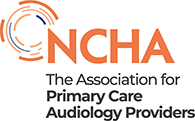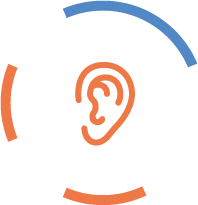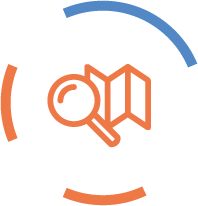The Care Quality Commission (CQC) is the independent regulator of health and adult social care in England.
This guidance helps members understand whether they need to register with the CQC. It covers the most common audiological procedures but is not an exhaustive list, so if you intended to provide care not listed below, please get in touch for more bespoke guidance and support.
Hearing care
The CQC regulates a wide range of procedures related to diagnostics, screening, and physiological measurement. However, the following are not in scope of CQC regulation.
- Use of an auroscope [1]
- Hearing Aid Dispensers (HADs), or a person acting under their direction or supervision, that performs a hearing assessment, or supplies and fits a hearing aids, provided
- The service user is aged 19 or over, or
- If the service user is under 19 but the procedure is carried out in or arranged by a school or 16-19 Academy [2]
Most NCHA members manage hearing problems in adults only and the assessment, fit and supply of hearing aids is performed by HADs. These activities will be outside the scope of CQC registration.
If you intend to offer the above services to people aged under 19 years of age, and they will not have their assessment in, or organised by, their educational institute, then you should register with the CQC for this specific regulated activity.
If you intend to offer the above services performed by someone other than a HAD and not acting under the direction or supervision of a HAD, then you will also need to register with the CQC.
Ear wax management
The build-up of earwax is a natural physiological problem, that is more common in older adults.
Build-up of earwax can be confirmed using an auroscope which is outside the scope of CQC regulated activities [1].
If earwax needs to be removed, then the CQC believes this indicates it is a "disorder" [3]. This means in some cases it will come under the CQC regulated activity of a "Treatment of disease, disorder or injury" [3]
However, this only applies when:
- the person with earwax and a listed health care professional both agree there is a problem that needs an intervention; and
- the treatment is carried out:
- by a listed health care professional,
- by a team that includes a listed health care professional,
- under the supervision of a listed health care professional, or
- under the supervision of a team that includes a listed health care professional [4]
It is important to note that HADs, hearing care assistants, pharmacists and optometrists are not listed health care professionals in this specific context [5]. This means that when HADs manage earwax, members do not need to register with the CQC unless:
- the HAD is working as part of a multi-disciplinary team that includes a listed healthcare professional, or
- the earwax management is being carried out under the supervision of:
- a listed health care professional, or
- a team that includes a listed health care professional.
For example, if you are using an ENT-nurse to manage earwax or help manage or supervise the management of earwax, you will need to register with the CQC.
Members can contact the NCHA for a full list of listed health care professionals and to confirm whether they need to register with the CQC. Email us [email protected].
Use of professional titles
It is important to note that when deciding on whether an activity falls under the CQC scope of Treatment of disease, disorder or injury, you should
- Ensure the health care professional in question is performing a task in their capacity as a listed health care professional [6].
The CQC is also very clear that it is important not to use a professional title or present as a listed health care professional if this is not the qualification they are using for that specific job [6].
In summary, according to the CQC, the key question to consider is whether the person providing the service is using their professional qualification in the job they are employed to do. Where the person's qualification is coincidental or only relevant as background knowledge, it will not trigger the need for registration [6].
For example
- A general nurse who is also an audiologist technician. Earwax will be managed in their capacity as an audiologist technician. In this case this is not a listed health care profession and will not require CQC registration.
- An ENT-nurse who performs wax management will be performing wax management in their capacity as a specialist nurse. Nurses are listed health care professionals in the related regulations, this will require CQC registration.
If you provide other services or have any specific questions, please email [email protected].
Supervision and delegation
It is important to note that if care is provided under the supervision of a listed health care professional (e.g. doctor or nurse), then that care might fall under the scope of CQC registration even if performed by an audiologist [4]. Please get in touch with the NCHA team if you have any specific questions about CQC registration.
Originally published: 2 March 2022
Reviewed: August 2023
Next review date: August 2025
This guidance was reviewed in August 2023. No changes were made to the body of the text.
References
[1] CQC, 2015, The scope of registration,
https://www.cqc.org.uk/sites/default/files/20151230_100001_Scope_of_registration_guidance_updated_March_2015_01.pdf and CQC, Diagnostic and screening procedures CQC, https://www.cqc.org.uk/guidance-providers/registration/diagnostic-screening-procedures accessed 15 February 2022
[2] Health and Social Care Act 2008 Regulated Activities regulations 2014, Schedule 1, paragraph 7(g)
[3] CQC, 2022, Earwax removal treatments - do you need to register? https://www.cqc.org.uk/news/providers/earwax-removal-treatments-do-you-need-register
[4] Health and Social Care Act 2008 Regulated Activities regulations 2014, Schedule 1, paragraph 4(1)
[5] Health and Social Care Act 2008 Regulated Activities regulations 2014, Schedule 1, paragraph 4(4)
[6] CQC, Treatment of disease, disorder or injury, professional roles and protected titles, https://www.cqc.org.uk/guidance-providers/registration/treatment-disease-disorder-or-injury accessed 15 February 2022

 Your hearing and aural health
Your hearing and aural health  Commissioners and Policymakers
Commissioners and Policymakers  Member support and guidance
Member support and guidance News and views
News and views
 Hearing map
Hearing map
